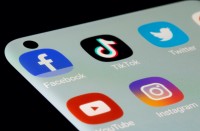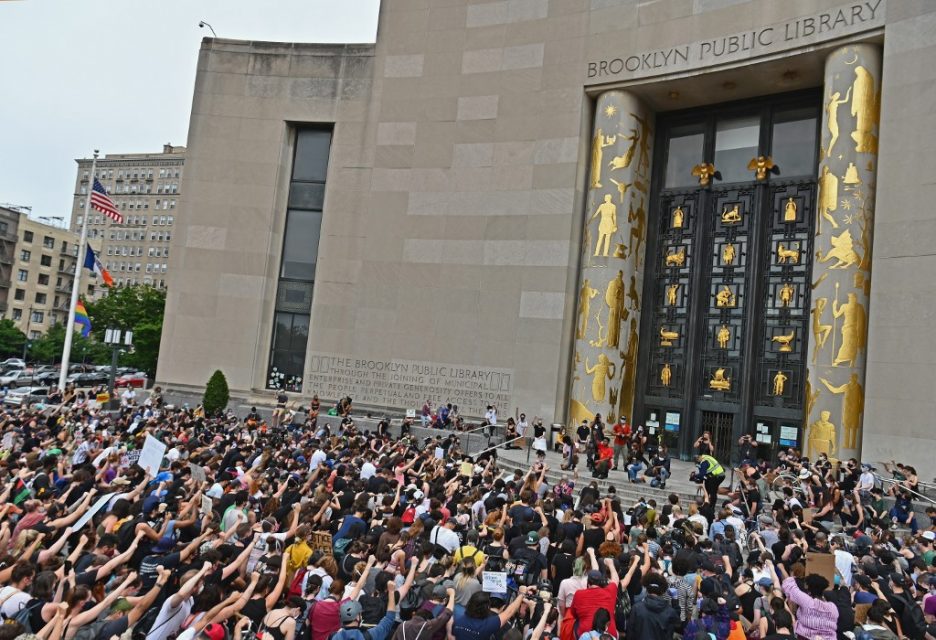
by Dmitry ZAKS with AFP bureaus
Taking a knee, chanting and ignoring social distancing measures, outraged protesters from Sydney to London kicked off a weekend of global rallies Saturday against racism and police brutality.
The death during the arrest of George Floyd, an unarmed black man in the US state of Minnesota, has brought tens of thousands out onto the streets during a pandemic that is ebbing in Asia and Europe, but spreading in other parts of the world.
UK Health Secretary Matt Hancock spoke for many concerned officials as he tried to convince Britons not to gather for events involving more than six people this weekend, no matter the cause or their rage.
“Like so many people, I am appalled by the death of George Floyd. I understand why people are deeply upset,” the UK health minister said on Friday.
“But we are still facing a health crisis and coronavirus remains a real threat.”
Londoners intend to rally outside parliament on Saturday and hold a big demonstration in front of the US embassy on the opposite bank of the Thames River on Sunday.
– Dressed in black –
Aboriginal protesters performed a traditional smoking ceremony at the start of a “Black Lives Matter” protest in Sydney, which was sanctioned at the last minute after initially being banned on health grounds.
Tens of thousands of Australians defied government orders to stay home regardless, holding up signs and wearing face masks marked up “I can’t breathe” — the words Floyd kept repeating while handcuffed as a policeman knelt on his neck.
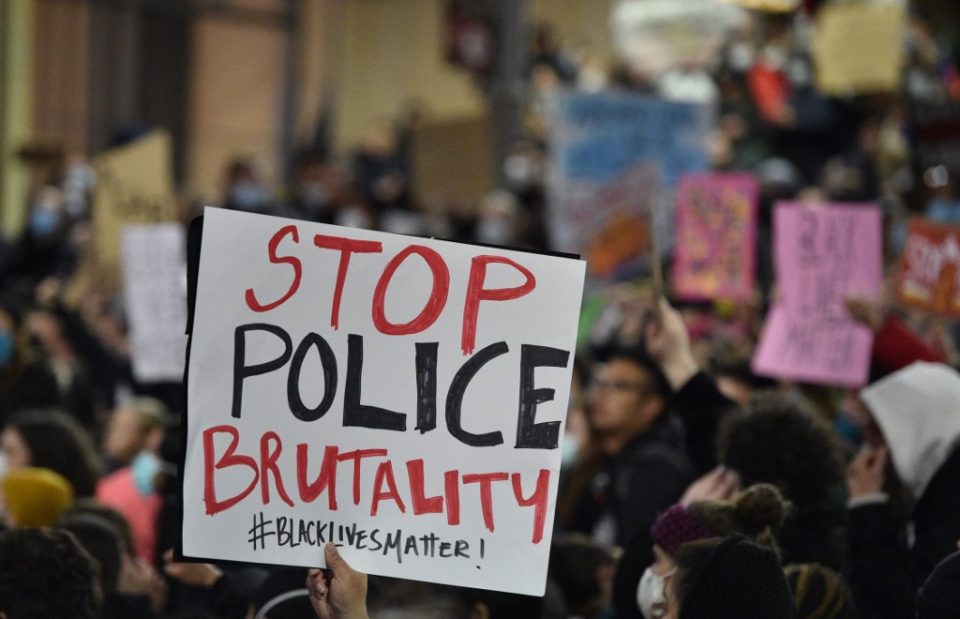
“The fact that they have tried to push us all back and stop the protest, it makes people want to do it even more,” said Jumikah Donovan, one of thousands who turned up thinking the Sydney ban was still in place.
Thousands more dressed in black to mourn Floyd’s death in Melbourne and other Australian cities.
Floyd’s death came during the spread of a disease that has disproportionately affected black people and ethnic minorities in global centres such as London and New York.
It also came in the throws of a historic economic downturn that has statistically affected the poor and marginalised the most.
This confluence, and accompanying outrage at US President Donald Trump’s partisan response, has refocused attention on the world’s racial divides like few other events since the 1960s.
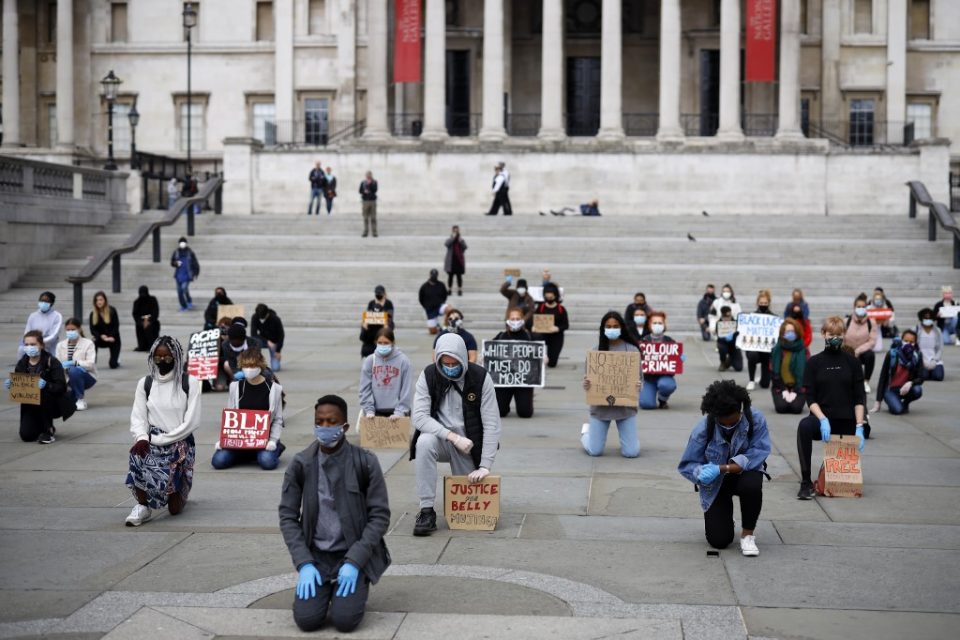
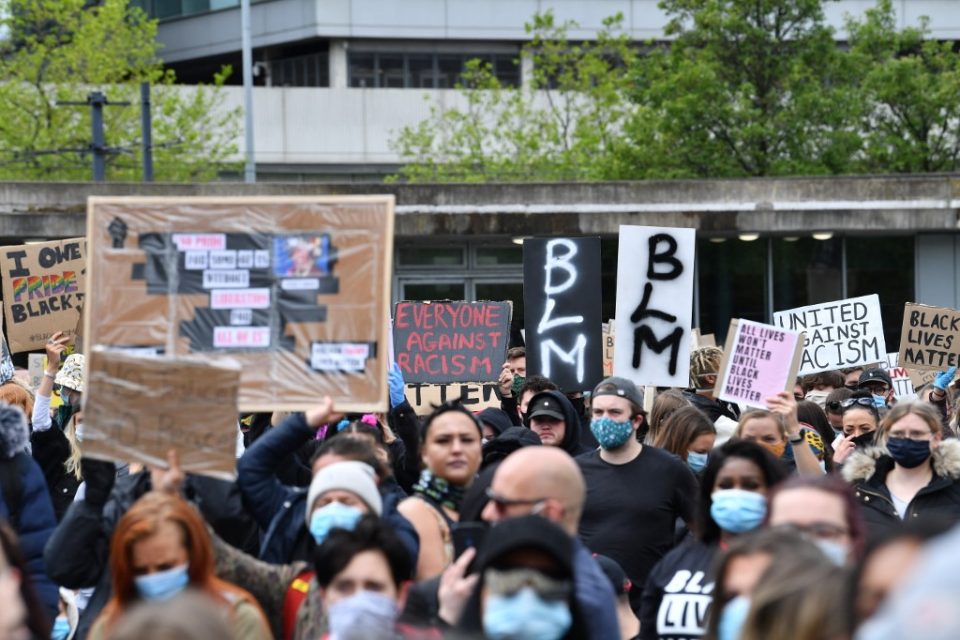
The US embassy in London said it stood “united with the British public in grief”.
“We welcome this exercise of free speech, which contributes to constructive dialogue, education and change,” the embassy said of the London protests, adopting a more conciliatory tone than the one taken by Trump.
“There remains much work to be done.”
– Thousands defy bans –
Memorial events and peaceful tributes were to stretch in Europe from Warsaw to Lisbon on Saturday, before shifting to major US cities and Canada’s Montreal.
In Paris, police banned a rally scheduled outside the US embassy compound and a second one on the Champs de Mars park facing the Eiffel Tower.
The Parisian authorities said the events denouncing police brutality were organised via social networks without official notice or consultation.
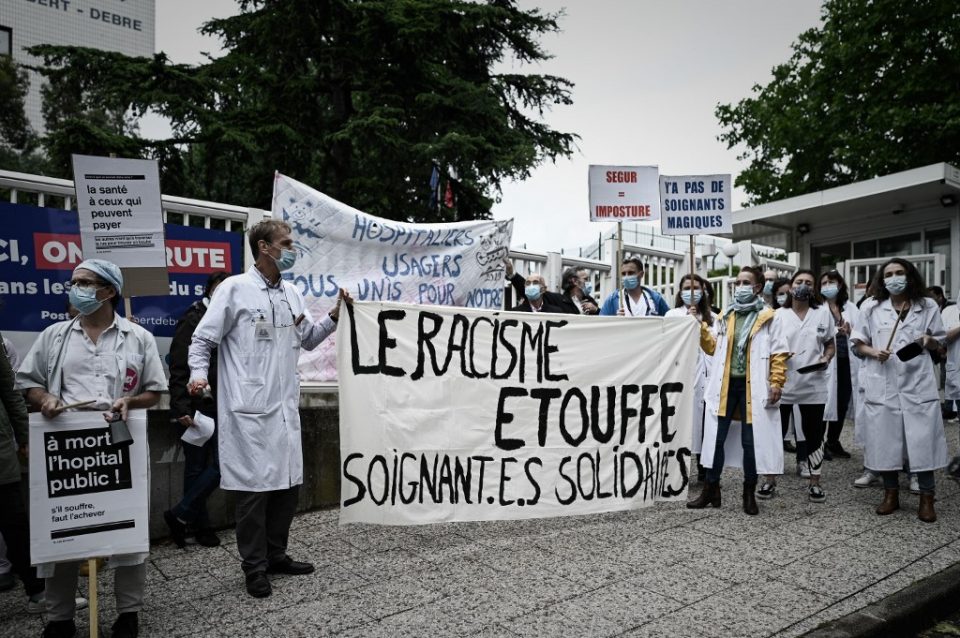
But on Tuesday, another banned rally in Paris drew more than 20,000 people in support of the family of Adama Traore, a young black man who died in police custody in 2016.
There were also events scheduled Saturday across Britain, in Amsterdam, and for the second week running in major US cities.
Tens of thousands were expected in Washington, where Mayor Muriel Bowse renamed the area outside the White House “Black Lives Matter Plaza”.
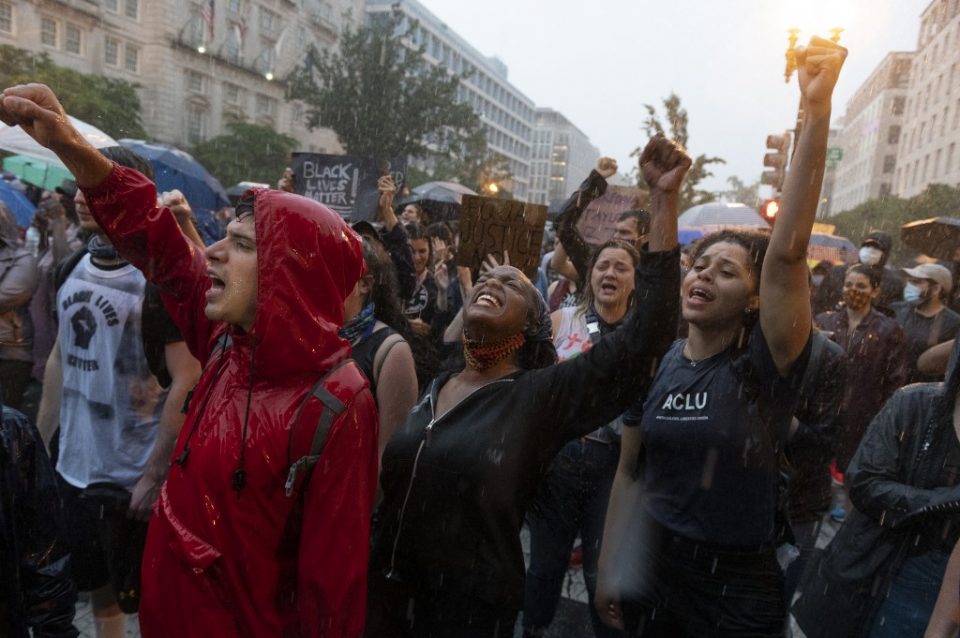
With tensions soaring, several US police departments have launched investigations into officers who were recorded hitting, pushing or baton-charging protesters and some reporters — including foreign ones.
The protests have even resonated in war-scarred countries such as Iraq, where the “American Revolts” and the Arabic phrase for “We want to breathe, too” hashtags are spreading on social media.
“I think what the Americans are doing is brave and they should be angry, but rioting is not the solution,” Yassin Alaa, a 20-year-old camped out in Iraq’s protest-hit Tahrir Square.
© Agence France-Presse




